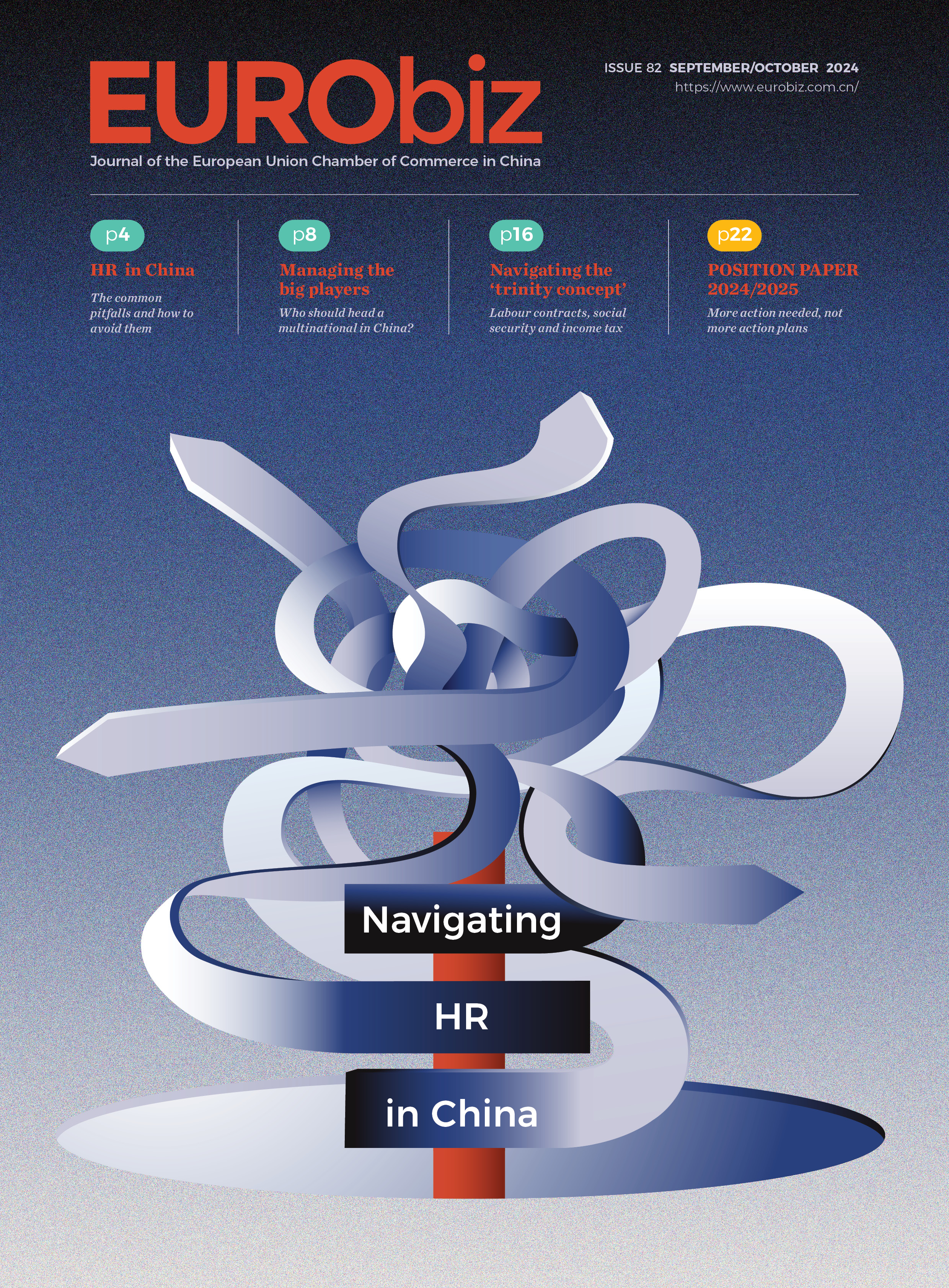2019 China CEO Outlook
As the People’s Republic of China celebrates its 70th anniversary, and the world prepares to move into a new decade, it is inevitable that companies will have to make adjustments to stay successful. The constant and rapid changes of the digital age are putting more demands on CEOs than ever before, no matter which part of the world they operate in. KPMG’s latest annual surveys of global and China CEOs show signs of convergence between the strategies of chief executives of China-based firms and their counterparts from around the world.
Among global and China CEOs alike, almost two thirds say that when their companies are expanding into developing markets, they are prioritising countries which form part of Beijing’s Belt and Road Initiative (BRI) – the China-led major investment in global infrastructure, trade and economic development across multiple regions and nations.
Indeed, the BRI is rapidly giving rise to more opportunities for cooperation between Chinese and foreign firms in emerging markets, not only in infrastructure investment but across a wide range of sectors including financial services, logistics, trade and the digital economy.
There is also evidence that China CEOs intend to ramp up investment in developed markets: almost half (44 per cent) of chief executives from mainland and Hong Kong firms say their preferences for geographic expansion over the next three years are mature economies. Fewer than a third said the same when surveyed in 2018. Direct investment in regions such as the United States and Europe provide another avenue for Chinese firms and their Western counterparts to compete and collaborate over new market opportunities and manage risks together.
In common with their global counterparts, China CEOs are increasingly eyeing mergers and acquisitions (M&A) as a way to drive their expansion. Some 85 per cent say they have a moderate or high M&A appetite for the next three years, up from around three quarters last year, reflecting a similar rise globally. Motivations for going down this road remain tried and tested: reducing costs, diversification and transforming their business model were the primary drivers.
China CEOs meanwhile join their counterparts in showing increased pessimism over prospects in the short and medium term. In fact, China is one of four major economies—along with the UK, Australia and France—where fewer than half of CEOs express confidence in the global economy. At the other end of the scale lies the US, where chief executives’ confidence in the global economy’s prospects jumped significantly over the past year.
However, China CEOs’ confidence in the outlook for their country (77 per cent) and company (94 per cent) has risen even higher in 2019. It is clear that China CEOs are aware of the importance nationally of transitioning to a high-value economy, and back measures being implemented to reach that goal. In spite of the headwinds they are faced with, China’s business leaders appear confident in the direction of the country’s development and its long-term prospects.
The global nature of climate change means CEOs from China and around the world are aligned on environmental risk: many consider it the number one threat to growth, and overwhelmingly agree that their firms’ growth will be determined by the ability to successfully manage the transition to a low-carbon economy.
As business models everywhere undergo rapid change, almost two thirds of China CEOs agree that partnerships with third parties are the only way for their firms to achieve the agility they will need in the new marketplace. But they remain highly selective: almost three quarters (73 per cent) say they are looking for quality over quantity in the search for new partners, an even higher proportion than their global counterparts.
With China home to some of the world’s biggest tech giants, the country’s business leaders are more keen than their peers around the world to partner with third-party data providers and third-party cloud technology partners—with more than half planning to do so over the next three years—although they are less keen to collaborate with innovative start-ups.
Innovation is right at the top of China CEOs’ agendas, with a marked increase in the proportion of business leaders prepared to actively disrupt their sector – rather than wait to be disrupted by competitors. It is still true that fewer China CEOs than their global counterparts are willing to embrace this strategy, but the gap is rapidly closing. In 2018, just 29 percent of China CEOs said they would actively disrupt their sector, but this figure jumped to 54 percent in 2019, closing in on the global figure of 63 percent.
And more China CEOs than their global counterparts say they expect returns within three years from their investment in disruptive technology. For example, almost half expect to see significant returns on their companies’ investment in AI systems in the near term. This is not surprising given the rapid development of China’s digital economy, which is estimated to have grown almost 21 per cent in 2018 to reach United States dollars (USD) 4.67 trillion (Chinese yuan (CNY) 33 trillion), accounting for over a third of GDP. [1]
Even established technology companies are having to make bold moves in response to significant advances in IT architecture—from mobility to cognitive computing—to ensure they stay ahead of fast-moving competition. In a complex and fast-changing business landscape, China CEOs recognise that innovation and technological disruption are at the forefront of how to stand out from the competition.
Note: The material in this article is sourced from KPMG’s 2019 China CEO Outlook available at https://assets.kpmg/content/dam/kpmg/cn/pdf/en/2019/06/2019-china-ceo-outlook.pdf
and KPMG’s 2019 Global CEO Outlook, available at: https://assets.kpmg/content/dam/kpmg/xx/pdf/2019/05/kpmg-global-ceo-outlook-2019.pdf
[1] 2019 White Paper on the Development of China’s Digital Economy and Related Industries (中国数字经济发展与就业白皮书 2019年), China Academy of Information and Communications Technology, April 2019, p. 3. http://www.caict.ac.cn/kxyj/qwfb/bps/201904/P020190417344468720243.pdf
KPMG China is based in 23 offices across 21 cities and regions with around 12,000 partners and staff in Beijing, Changsha, Chengdu, Chongqing, Foshan, Fuzhou, Guangzhou, Haikou, Hangzhou, Nanjing, Qingdao, Shanghai, Shenyang, Shenzhen, Tianjin, Wuhan, Xiamen, Xi’an, Zhengzhou, Hong Kong SAR and Macau SAR. Working collaboratively across all these offices, KPMG China can deploy experienced professionals efficiently, wherever our client is located.



Recent Comments